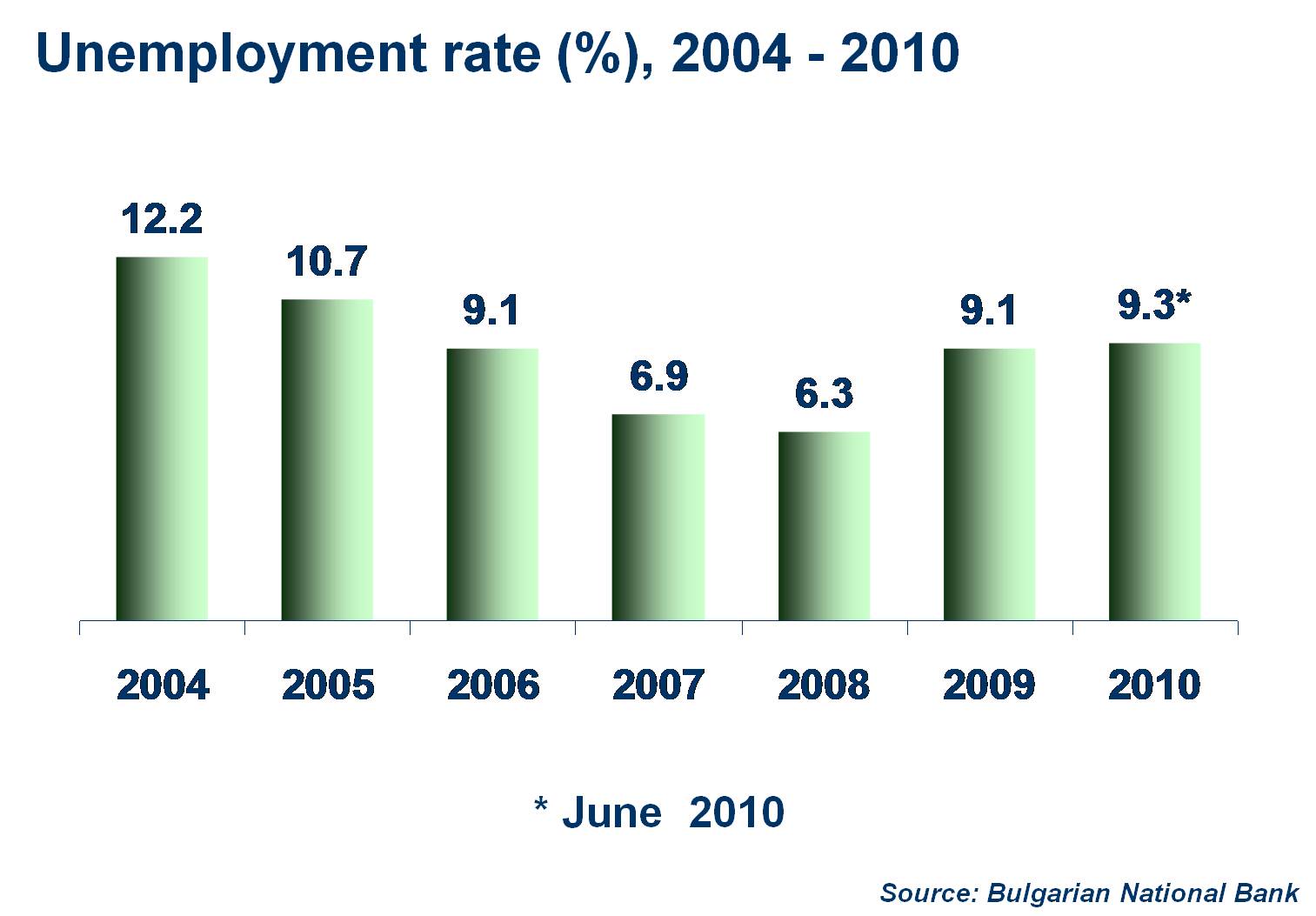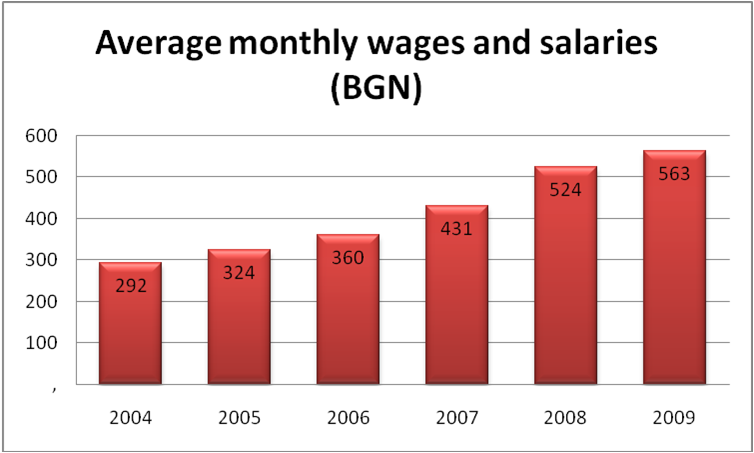Labor market and pays
The search and recruiting processes of workers are the same as in most European countries. Specialized employment agencies operate on the market. Various activities related to recruiting new workers can be ordered – from placing ads to pre-selection including psychological and practical tests.
The relatively high dynamics of the National Gross Product growth has a positive influence on the labor market – the rate of employment rises and the unemployment rate drops.
Chart. Rate of unemployment in Bulgaria in 2004 - 2010.

The problem of unemployment is greater in rural areas and small towns than in large cities. It is a result of a lack of industrial infrastructure. The pays and salary structure have to meet the regulations of the Labor Code. Total employment costs include basic salary, social insurance contributions and some less important taxes. The public sector pays are usually higher than the private sector ones. It relates to small and medium sized enterprises because the foreign investors in large private plants offer competitive wages to get the best workers. The average public sector pay is usually higher than the private sector pay – it is a result of relatively higher salaries in the largest national companies [monopolists in a given industrial branch]. The phenomenon occurred in telecommunications, tobacco and power industries. The salaries in the capital city are significantly higher than in the remaining cities. The average monthly gross sallary in 1Q'2009 was 526 BGN.
Chart. Average monthly gross salary in Bulgaria in 2004 – 2009 [BGN]

The highest average level of salaries is in Sofia, Varna, Burgas and Plovdiv. The average monthly income in Sofia is about 30 – 40% higher than in the remaining cities of the largest salary levels mentioned above.
With a low level of salaries and high unemployment rate the income per capita is still relatively low despite its systematic growth. The average income per capita in the household sector is only 25% of the average EU income [calculated according to the purchasing power].





